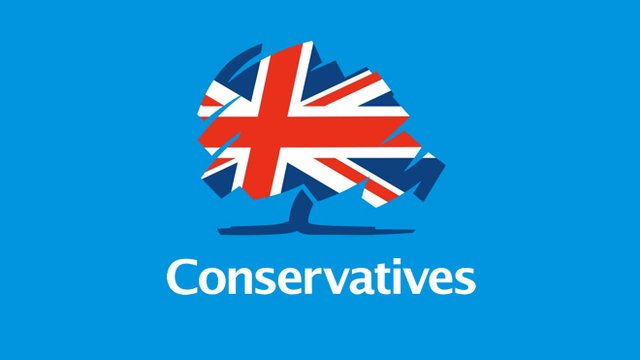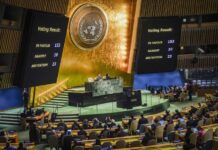
The Conservative Party have opened up a record 22-point lead over Labour according to an ICM research poll. The Tories are holding at 49 per cent while Jeremy Corbyn’s party is way behind on 27 per cent. The survey found that this is the largest gap found by ICM in more than three decades of tracking public opinion.
If these polls turn into actual results on 8 June, then the Conservative Party could potentially be looking at a majority of more than 170 seats in the House of Commons.
It certainly looked good for the Conservative Party in last week’s local election results when they triumphed over Labour.
With 88 councils up for grabs just weeks before the general election, Theresa May’s party won nearly 600 council seats and Labour lost more than 300.
Labour lost its status as the largest party in Cumbria, where the Tories ousted councillor Gillian Troughton just weeks after defeating her in the Copeland by-election.
Labour also lost control of heartlands Blaenau Gwent, Bridgend and Merthyr Tydfil – the Valleys town with a coal mining heritage. But the party secured its city bases in Wales and took some comfort from its showing in the Principality.
The Lib Dem fightback failed to materialise although the party did unseat two Tory council leaders and scored symbolic victories over UKIP. The Green Party produced a more impressive showing, more than doubling its number of seats.
UKIP were wiped out, losing all of their seats in Lincolnshire where party leader Paul Nuttall is standing in the general election.
The SNP finished comfortably as the largest party in the Scottish council elections despite the Conservatives making big gains.
The Tories increased their total number of councillors by more than 160, including in areas that had previously been “no-go” for the party. Not since 1980 have the Conservatives made such a resurgent return to Scotland.
But the SNP has replaced Labour as the largest party in Glasgow, although it fell short of winning a majority. Scotland’s biggest city had been under Labour control for decades.
The SNP also replaced Labour as the largest party in Edinburgh and Aberdeen, as well as in North Lanarkshire, West Dunbartonshire and Renfrewshire, where Labour had won majorities in 2012.
But the SNP lost overall control of Dundee and Angus councils – the only two areas where it had secured majorities five years ago – as the Conservatives increased their number of seats.
SNP leader Nicola Sturgeon, the country’s first minister, said her party had achieved “a clear and emphatic victory” in the local elections.






















